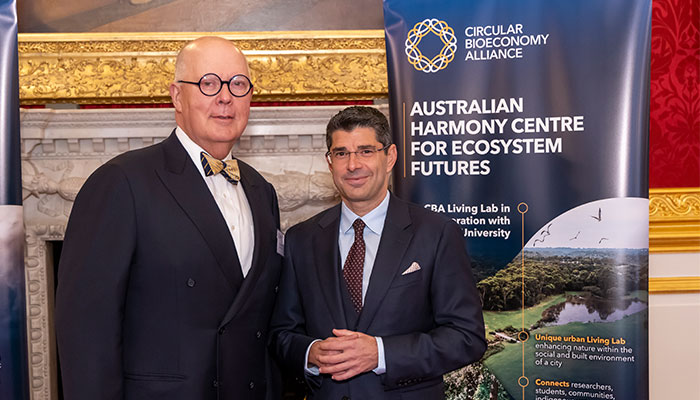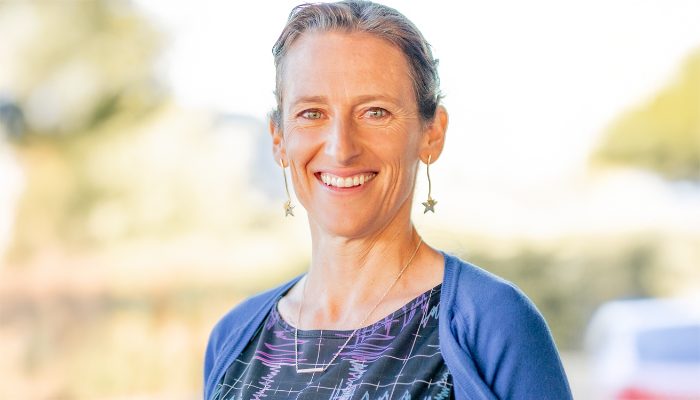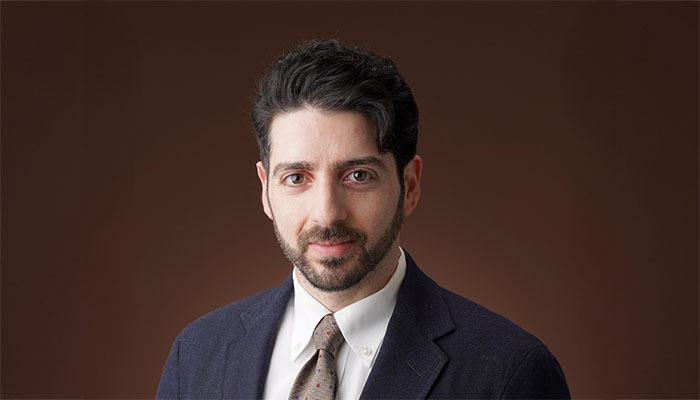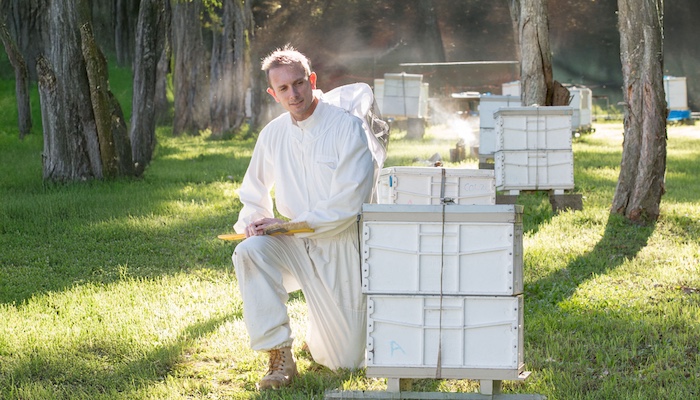The first of its kind in Australia, the Harmony Centre was unveiled last week at an exclusive event at St James’s Palace in London, hosted by the Circular Bioeconomy Alliance (CBA) and attended by His Majesty King Charles III, as well as CEO of the CBA, Dr Marc Palahí, and Macquarie University Vice-Chancellor Professor S Bruce Dowton.
The event marked the launch of the CBA as a UK charity; Macquarie University is an affiliate member of the alliance.
Established by King Charles as the Prince of Wales, the CBA brings together scientific organisations, large corporations and local companies, banks and investment funds, indigenous peoples, and non-government organisations to accelerate the transition to a nature-first, circular bioeconomy that is climate neutral, inclusive and powers prosperity.
As an affiliate member, Macquarie University will contribute to the creation of scalable, proof-of-concept, renewable value chains, with the University campus acting as a ‘living lab’.
Dr Palahí, an eminent forest scientist and former director of the European Forest Institute (EFI), said Macquarie University’s park-like campus, as well as its existing and significant contributions to sustainability, make it an ideal collaborator.
“The Harmony Centre at Macquarie University is uniquely positioned among our members in that its location within an urban environment provides an opportunity to demonstrate the transformative power of nature in enhancing human health and wellbeing while addressing the interconnected crisis of climate change and biodiversity loss within the social and built environment of a city,” he said.
“We are excited to partner with Macquarie University, to help the Harmony Centre connect and collaborate with our incredible network, and to leverage the University’s world-renowned expertise to help realise a genuine nature-first economy.”

Vice-Chancellor Professor S Bruce Dowton and Circular Bioeconomy Alliance CEO, Dr Marc Palahí, celebrate the launch of the Harmony Centre.
The CBA has been developing the concept of living labs, which are typically established as landscape restoration projects to promote the development of a circular bioeconomy value chain while restoring biodiversity and creating economic benefits for the local region.
The Harmony Centre’s first project, or living lab, will comprise landscape repair and protection on the University’s 126-hectare Wallumattagal campus, which connects to the adjacent Lane Cove National Park and surrounding green network and waterways.
Professor Dowton said such projects will enable the Harmony Centre to develop a blueprint for future living labs around the world.
“Macquarie University is proud to be collaborating with the Circular Bioeconomy Alliance to help drive meaningful, sustainable change,” he said.
“Through the work of our living lab, the Australian Harmony Centre for Ecosystem Futures will develop new models, strategies and approaches for using renewable natural capital to holistically transform and manage our land, food, health and industrial systems, as well as our cities.
“Putting forward a new economic model will require transformative policies and purposeful innovation, and this is a challenge to which Macquarie University is committed.”
Other examples of living labs include the development of a region of food forest in the Amazon basin, regenerative agriculture for sustainable cotton production in Chad and Italy, and the development of regenerative fashion landscapes in the Himalaya for cashmere production.
Public-private partnerships are a key component in placing local communities at the centre of these living labs.
The Harmony Centre builds further on Macquarie University’s sustainability commitment, which is aligned with the United Nations Sustainable Development Goals. In 2023, the University refinanced $450M of bank facilities by establishing a five-year Sustainability-Linked Loan Framework, which links interest margins to social and environmental key performance indicators (KPIs). The University was recognised for this framework at the global Sustainable Debt Awards 2024.



